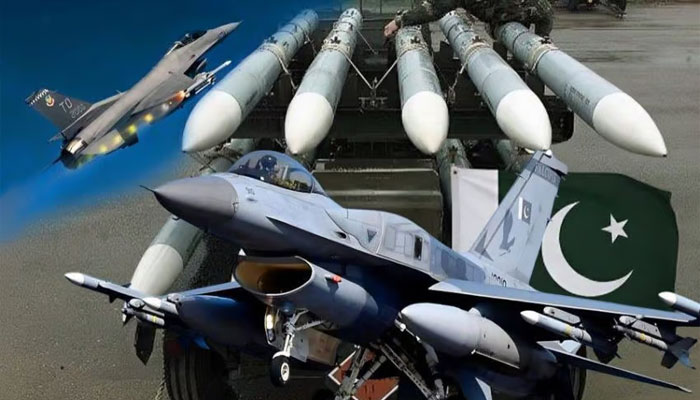Pakistan to Receive US Air-to-Air Missiles by 2030
The move is seen as a crucial modernization step for the PAF, providing a tactical edge in precision and operational range.
WASHINGTON: The United States has approved the sale of advanced AIM-120D-3 Advanced Medium-Range Air-to-Air Missiles (AMRAAMs) to the Pakistan Air Force (PAF), marking a significant step in renewed military cooperation between the two nations.
According to official documents released by Washington, the $2.5 billion contract awarded to Raytheon Company includes production of the latest generation AMRAAM missiles not only for Pakistan but also for Turkey and other US allies. The AIM-120D-3 variant offers major upgrades in beyond-visual-range (BVR) combat, featuring enhanced accuracy and extended reach to effectively neutralize enemy aircraft and incoming threats.
Defense analysts have highlighted that this acquisition will significantly boost the strike and air defense capabilities of Pakistan’s F-16 fleet, replacing the older AIM-120C-5 missiles that came with the Block 52 aircraft purchased in 2010. The move is seen as a crucial modernization step for the PAF, providing a tactical edge in precision and operational range.
Read more: Putin warns US against sending Tomahawk missiles to Ukraine.
Pakistan has reportedly been lobbying for these next-generation missiles for years to strengthen its air defense in response to evolving regional security dynamics. The breakthrough came after high-level talks in July, including visits by PAF Chief Air Marshal Zaheer Ahmed Baber Sidhu to Washington and meetings with senior US officials. Similarly, Army Chief Field Marshal Asim Munir’s recent discussions with former US President Donald Trump and top defense officials underscore a renewed phase of practical military cooperation.
Inter-Services Public Relations (ISPR) Director General Lt Gen Ahmed Sharif Chaudhry emphasized Pakistan’s balanced defense strategy, focusing on integrating efficient platforms and advancing domestic technology. In an exclusive interview with Bloomberg, he stated that Pakistan remains open to acquiring technology from both Eastern and Western sources while prioritizing indigenous development.
“Our military development strategy is centered on effectiveness and efficiency, incorporating both domestic and international technologies,” Lt Gen Ahmed Sharif remarked, signaling Islamabad’s pragmatic approach to defense modernization.
This missile deal reflects a growing strategic alignment and confidence between Pakistan and the US in enhancing regional security and defense capabilities ahead of 2030.




Comments are closed, but trackbacks and pingbacks are open.